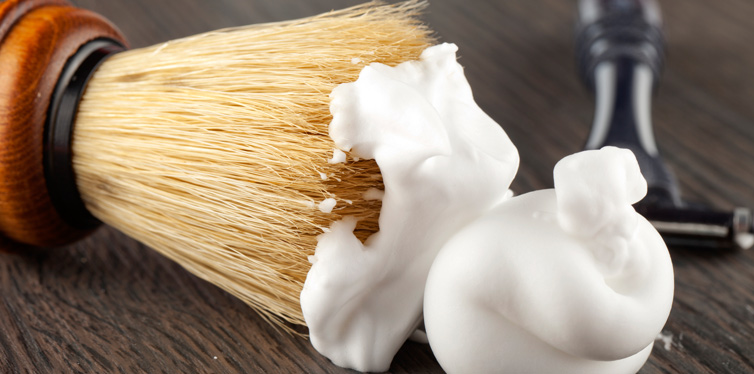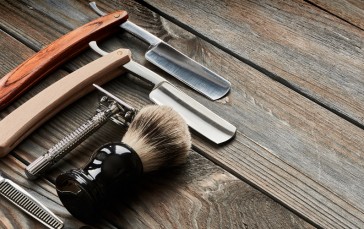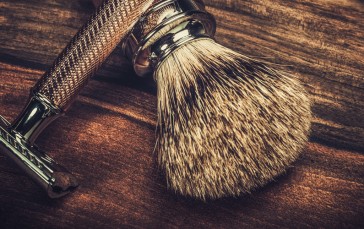Facial Hair Shaving Frequency
One question that is asked a lot when it comes to male grooming is – How often should you shave facial hair? As beard growing and grooming has seen something of a renaissance in recent years, the question is very apt.
Everyone seems to have their own opinion and routine when it comes to shaving. Some guys shave every day, while others give their beard a or nose a little trim here and there. The thing is there is really no right or wrong way when it comes to shaving. It is all down to what you personally prefer.
So if you are trying to work out your shaving routine and how often you should shave, you need to think about what kind of look you want or need. You will need to shave more often if you are wanting to achieve a clean-shaven look every single time you leave the house. Whereas if you are looking to have that cool and suave stubbly look like George Clooney, then the frequency of your shaving will be different.
One major factor when it comes to shaving that should be considered is the requirements of others. While we all want to be as free as a bird and be our own men, we are often bound by either social or business constraints.
For example, if you work for a particular business where you are required to look smart and fit a certain profile, beards may be completely off the facial menu. Likewise, your partner may not find that chin rug that happens anytime you avoid shaving for a little while; either way, you would have to shave to keep them happy.
In this post, we will give you a guide as to the kinds of looks that can be achieved with the most common shaving routines.

Shave Every Day
If you are trying to achieve that slick and fresh clean-shaven look, you are going to need to shave your face every day, at least once. If you are like many men, in the morning is the optimal time to shave as you will be able to make sure you look as smooth as you can.
Shave Every Two Or More Days
Are you looking to achieve that George Clooney look that we mentioned earlier? You know, the one that makes the ladies go gooey eyed? Then, you are going to want to shave every other day, maybe every two to three days to keep your face looking stubble-tastic.
A further benefit to following this shaving routine besides getting the ladies knickers in a twist, is the fact that you give the skin on your face time to heal from the after effects of shaving.
Shave One Day A Week
If you can’t be bothered or don’t have the time to shave every day or even every other day, and your job allows some leeway when it comes to your grooming – you could try shaving only once a week.
Men who do this often shave on the Sunday night before bedtime and then over the course of the working week, allow their stubble to form, before it is eradicated a week later.
Obviously, this is not for everyone, because if your hair has a tendency to grow back quickly, there may not be any escaping a more regular shaving regime. Unless of course you trim regularly to keep the hair that does grow in looking neat and under control.

Never Ever Ever Shave
Perhaps you have decided to enter into the highly esteemed fray of beard owners. If this is the case, then you may never have to shave again. Well… that’s not strictly true. Sure, you won’t want to attack the bulk of your hair growth with your trusty blade, as that would be counterproductive to what you were trying to achieve.
However, if you want a beard that looks great and not just a shaggy mess stuck onto your face…you need to maintain it and that requires you to participate in some grooming. One particularly great grooming product is beard shampoo and our top picks can be found here.
In fact, we would wholeheartedly recommend that if you cannot be bothered to put the effort and work into keep your beard looking as awesome as you can…you need to give up on owning a beard.
Not only does it give beardies with self-respect a bad name, but it’s just not a good look unless you are a hermit or man of the jungle.
So how often you shave will depend on how you want to look and what shaving kit you have, as well as important factors as work and partner commitments.










